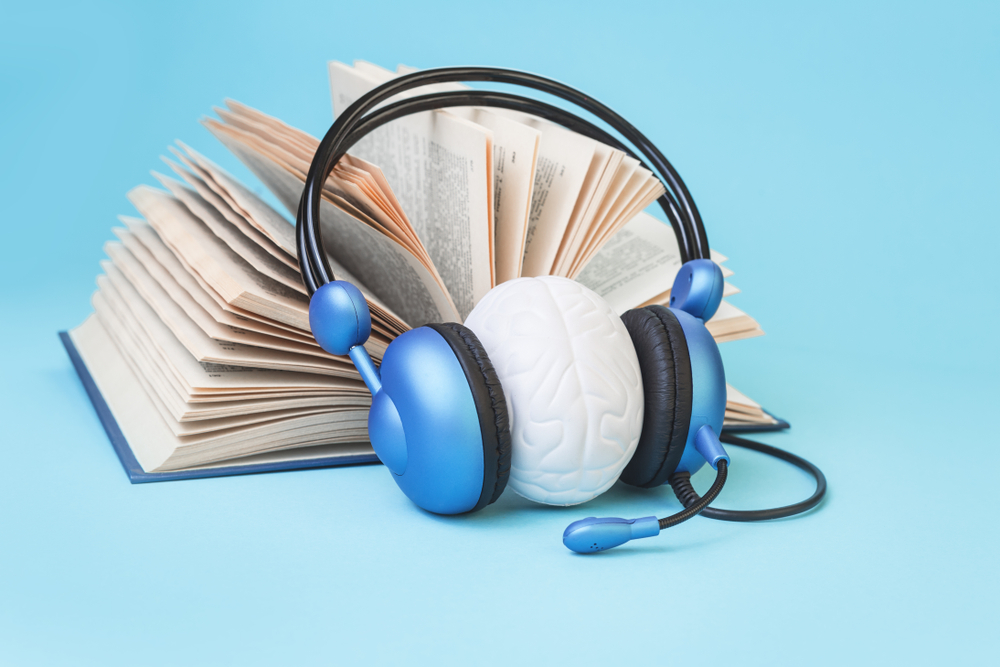 Each human brain is wired differently resulting in the development of each person’s unique thought process and emotions. The human brain acts as a central hub for our body, storing our memories, and emotions, and even the ability to regulate our body temperature. In short, the brain is one of the most important organs in our bodies. People with dyslexia are considered to have a learning difficulty that affects the parts of the brain responsible for learning skills such as reading and writing. Moreover, dyslexic individuals have the ability to handle thought processes differently from those without it. This means that dyslexia affects the cognitive landscape of each individual in more ways than just reading and writing difficulties. With this in mind, how exactly do dyslexics think differently to those who don’t have it? Does the brain work differently as a whole? In this article, we will discuss what dyslexia is, how to recognize the signs and discover how the brain of a dyslexic person operates and thinks differently. The Brain Workshop is a team of dedicated professionals who work on a one-to-one basis with individuals who face difficulties with learning. The aim of the intervention is to assist the user with developing learning skills. To find out more about what we do, get in contact with us today where a member of a friendly team will be delighted to help you.
Each human brain is wired differently resulting in the development of each person’s unique thought process and emotions. The human brain acts as a central hub for our body, storing our memories, and emotions, and even the ability to regulate our body temperature. In short, the brain is one of the most important organs in our bodies. People with dyslexia are considered to have a learning difficulty that affects the parts of the brain responsible for learning skills such as reading and writing. Moreover, dyslexic individuals have the ability to handle thought processes differently from those without it. This means that dyslexia affects the cognitive landscape of each individual in more ways than just reading and writing difficulties. With this in mind, how exactly do dyslexics think differently to those who don’t have it? Does the brain work differently as a whole? In this article, we will discuss what dyslexia is, how to recognize the signs and discover how the brain of a dyslexic person operates and thinks differently. The Brain Workshop is a team of dedicated professionals who work on a one-to-one basis with individuals who face difficulties with learning. The aim of the intervention is to assist the user with developing learning skills. To find out more about what we do, get in contact with us today where a member of a friendly team will be delighted to help you.
What is Dyslexia?
Dyslexia is categorized as a common learning difficulty, however, unlike other learning difficulties, the individual’s intelligence is not affected. In comparison to other forms of learning disability, dyslexia only affects certain functions of learning such as reading and writing. Typically, dyslexic individuals face difficulty in these types of literate tasks meaning they may require reasonable adjustments. Due to the fact that it is so common, Dyslexia is thought to affect every 1 in 10 people to a different degree. The severity of dyslexia will develop from person to person. Once diagnosed through a series of tests, dyslexia is treated as a lifelong learning difficulty where great support is available to help build up specific learning skills.
What Are the Signs of Dyslexia?
Many people present dyslexia in different ways, most commonly at a young age when they begin their academic journey. The most common signs reported are:
- Slowed reading and writing
- Poor spelling
- Issues with following sequences, patterns, and instructions
- Confusion of letter ordering in words
- Confusing letters that sound and look similar
Each person may experience slightly different symptoms, however, if you recognize any of the symptoms it is essential to consult a professional for further intervention and a diagnosis.
The Brain Hemispheres
The human brain comprises two hemispheres; the left hemisphere and the right hemisphere. Each hemisphere of the brain is responsible for different cognitive functions.
The Left Hemisphere
Responsible for:
- Language processing
- Speech
- Analysis
- Logical Reasoning
- Tackle patterns and sequences
- Following a routine
- Arithmetic and literacy
The Right Hemisphere
Responsible for:
- Imagination
- Visual processing
- Creativity
- Analog skills
- Multitasking
- Processing information
- Thinking outside of the box/seeing the bigger picture
Which Hemisphere is Dominant in People With Dyslexia?
The right hemisphere of the brain is typically dominant in those who have been diagnosed and live with dyslexia. Due to increased dominance of the right hemisphere, people with dyslexia have a natural weakness for skills controlled by the left hemisphere, for example, language processing, reading, and writing. On the other hand, a dominant right hemisphere results in a natural preference and stronger ability for skills such as thinking outside of the box, using imagination, and thinking in a creative way.
Thinking Visually
 People who are diagnosed with dyslexia are often considered to be strong visual thinkers, meaning they process information and instructions from pictures better than they do words. This allows dyslexic individuals to benefit from a heightened visual awareness meaning their brains can conceptualize images and pictures at better rates than the average brain. There are key benefits to having a heightened ability to think differently:
People who are diagnosed with dyslexia are often considered to be strong visual thinkers, meaning they process information and instructions from pictures better than they do words. This allows dyslexic individuals to benefit from a heightened visual awareness meaning their brains can conceptualize images and pictures at better rates than the average brain. There are key benefits to having a heightened ability to think differently:
- The ability to picture scenarios if your head
- A heightened sense of creativity
- Increase capability to brainstorm ideas
- Being able to think visually creates an opportunity to understand information better
The Ability to Think Outside the Box
A largely beneficial quality for individuals with dyslexia is the ability to think outside of the box and adopt original methods of thinking. This poses a clear advantage for those who have dyslexia as it allows them to cultivate innovative and unique ideas and showcase a creative way of thinking. In fact, many reputable business people and inventors are said to have had dyslexia during their lifetime.
The Ability to Hold a Great Conversation
Dyslexic people are often great conversationalists. With an enhanced ability to interact with and read people, individuals with dyslexia possess a brilliant ability to engage in interesting conversations. This skills allows them to build relationships quickly and get to know their peers through the art of conversation.
Problem-Solving Skills
When it comes to solving a puzzle or problem, individuals with dyslexia often stand out of the crowd with a heightened ability to analyze information and think critically. One of the main advantages of being a visual learner allows them to visualize a finished product which helps to aid with the solving of the problem or puzzle.
Tips For Effectively Managing Dyslexia
While Dyslexia is considered a lifelong learning difficulty, there are ways that individuals can manage their dyslexia or ways in which parents of a child with dyslexia can help.
- Actively participate in writing and reading tasks to improve the skills over time
- If reading books is challenging, try reading audiobooks
- Regular spelling and handwriting practice
- Find ways to make learning less stressful and more fun
- Try typing instead of writing by hand
- Reading to a child
- Ask for reasonable adjustments where necessary (at work or school)
Reasonable Adjustments
In some cases, dyslexia can affect individuals more significantly than others. No matter the severity, you have a right to request reasonable adjustments in order to make work or school more manageable for you or your children. Children with dyslexia can benefit form reasonable adjustments in school which can include, colored overlays, adapted stationary, extra time in exams and tests, and extra one-to-one support from a teacher or teaching assistant. For adults in work who have dyslexia, you are entitled to request reasonable adjustments which may include tweaks to the recruitment process, training opportunities, specialist equipment if required, and the necessary support for your dyslexia throughout your career. There is no reason that people with dyslexia should feel singled out, therefore, education facilities and workplaces take the matter very seriously and are often pleased to assist with any reasonable adjustment requests you may have for you or your children.
In Summary
 The brain of a dyslexic operates differently from people without it; the dyslexic brain tends to have a more dominant right hemisphere rather than the left which is known to be responsible for arithmetic and literacy skills, hence, difficulty with reading and writing. On the other hand, many dyslexic individuals benefit from a heightened sense of creative thinking and problem-solving skills which allow for strengths in more practical areas of their life. Moreover, dyslexia should never be seen as a hindrance, but rather something that can be managed and worked on with effective support.
The brain of a dyslexic operates differently from people without it; the dyslexic brain tends to have a more dominant right hemisphere rather than the left which is known to be responsible for arithmetic and literacy skills, hence, difficulty with reading and writing. On the other hand, many dyslexic individuals benefit from a heightened sense of creative thinking and problem-solving skills which allow for strengths in more practical areas of their life. Moreover, dyslexia should never be seen as a hindrance, but rather something that can be managed and worked on with effective support.
How Can The Brain Workshop Help
At The Brain Workshop we are devoted to providing inclusive support on a one-to-one basis to adults and children who struggle with learning difficulties such as dyslexia, ADHD, and autism. As well as this, we can offer comprehensive support to those who wish to improve on motor skills and practice skills to improve memory, increase attention span, or even academic performance. No matter the query, our team of brain experts is on hand to offer tailored and non-judgmental support to those to require it. We understand that it can seem overwhelming to come to us which is why we work at your pace on an individual basis. For more information about what we do at The Brain Workshop or to arrange an assessment, contact us today. We look forward to hearing from you.






